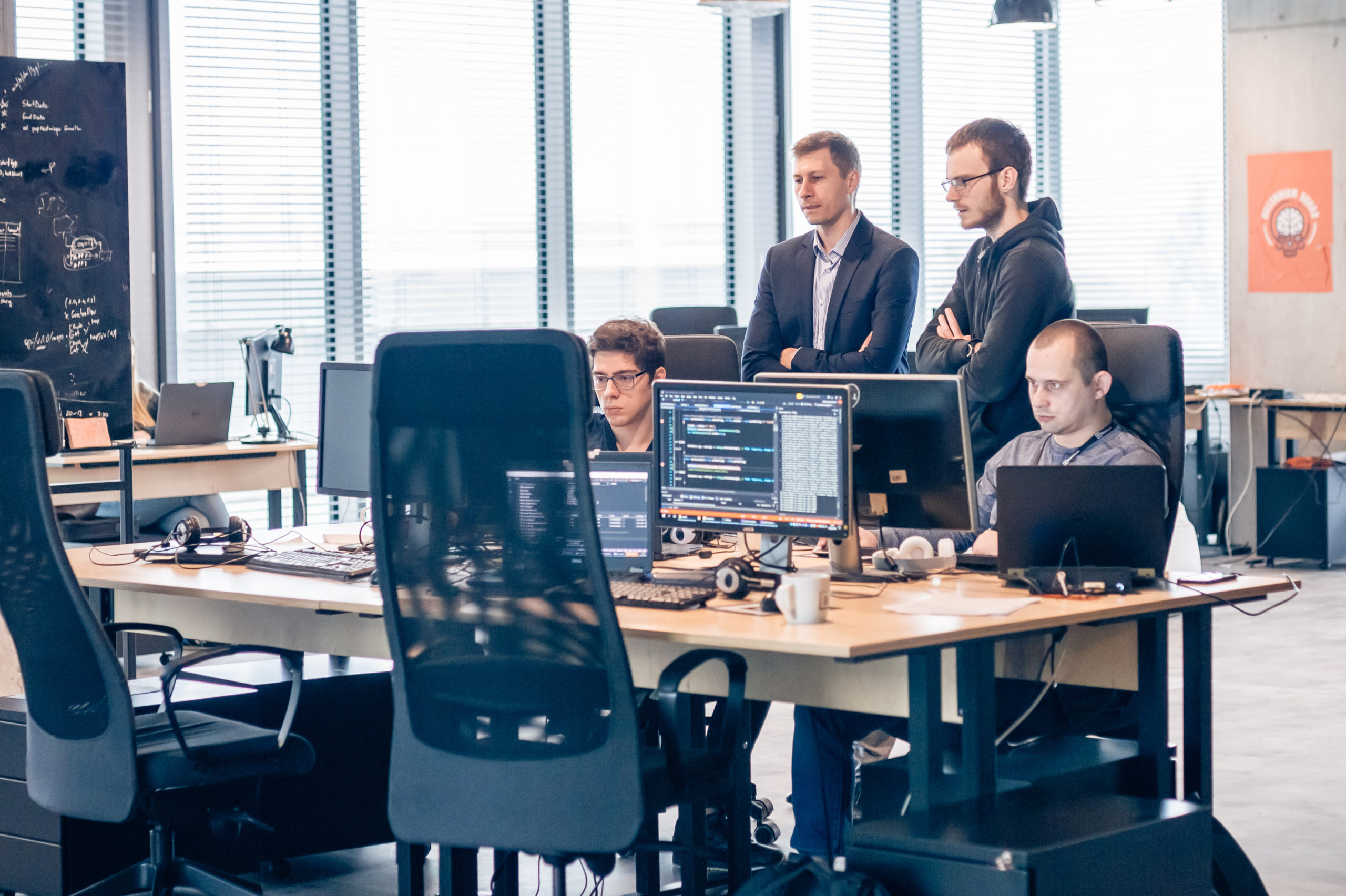The future is here, and at its center is none other than artificial intelligence (AI). It is the most transformative technology in history, completely reshaping how we do business, develop new IT solutions or function as societies in every area of our lives.
There is a lot of talk about it, putting pressure to use it in our own companies, using buzzwords like digital transformation, becoming data-driven, or GenAI revolutionizing operations. However, there are few tangible examples of what real-world benefits and opportunities it brings and what, in this dynamic landscape of its growth, is the future of AI. Let’s dive into this together to find out the answers.
How Will AI Change the world?
The global impact of AI is already so significant that it’s very likely that there is no sector in which it is not present. Every day, the e-commerce industry uses AI-based personalization of offers based on analysis of user data, as we see when reviewing ads tailored to our current needs and shopping plans.
Back-office departments of companies, regardless of sector, are using intelligent process automation (e.g., via RPA in accounting), and the manufacturing industry is creating smart factories with AI to predict equipment failures or automate production.
The financial sector uses machine learning to improve trading or risk management with predictive models, conversational AI, and natural language processing (NLP) to create chatbots that serve customers. Projections assume that in 2027, AI in finance will become a $130 billion industry, compared to 2019 ($8.3 billion), this is an unprecedented rise.
This is just a small sampling of AI solutions dedicated to the needs of various industries, as they only multiply with its development, which shows how artificial intelligence is transforming the world, already becoming an integral part of our everyday life, rather than a preview of changes yet to come.
The impact on our daily lives, however, is not just another empty slogan – AI solutions in the health and pharmaceutical sectors affect not only the improvement of patient data management, streamlining the discovery of new medications, but has its uses, for example, in reading medical images, leading to more effective and faster diagnoses.
So, it’s worth asking how AI is changing the world instead of wondering what its future will bring because we know today how dynamically new capabilities and solutions are developing.
AI Advancements
The latest AI developments are crucial to business, empowering it and setting it on paths worth pursuing to build a market advantage continually. Among one of the most common and widely used AI developments is GenAI, a field of AI that creates original content using algorithms and machine learning models.
Since the first editions of ChatGPT appeared, companies, in addition to implementing it into their operations, have begun to look for their own solutions – building customized models instead of using market ones. According to forecasts and analyses, enterprises will continue to follow this path to reap the most benefits from GenAI for their business, using available capabilities, exploring other solutions, and creating their own.
AI Impact on Data
Still, one of the influential AI trends, which is also one of the strongest opportunities for companies operating on data, is the combination of GenAI with Business Intelligence. GenBI not only offers companies access to integrated, cleansed, and meticulously collected data in one place but also allows the creation of predictive models and chatbots and gives access to visualized data – charts, statistics, and reports – even to those who are not analysts.
AI Impact on the Health Sector
The health sector is heavily supported by AI, starting from the essential scope of data entry, databases, and medical records software automation and launching chatbots for patients to complex and ground-breaking innovations like surgical robotics. Advanced AI technologies are now used primarily in diagnostics, such as radiology and pathology, allowing the identification of elements that doctors may overlook. These include metastatic nodules visible to AI on CT scans, leading to more accurate and faster diagnosis and allowing the implementation of appropriate life-saving treatment.
AI Impact on the Pharma Sector
AI in the pharmaceutical industry is optimizing clinical trial processes using algorithms that analyze vast amounts of data, automatically sorting it and providing the essential information about candidates, categorizing them and getting rules, eliminating manual work, and revolutionizing the process. Another transformative innovation in the drug research and development sector is using the AI model to repurpose existing medications to treat other, often very rare diseases.
AI in pharma continues to expand its capabilities, as in addition to discovering new drugs, it also contributes to improving their distribution, supporting pharmacy systems, and automating all processes related to research and development.
AI Impact on the Public Sector
Public services are no exception, and among them, artificial intelligence is gaining popularity and finding custom applications. In this case, however, the process of decisions and implementations is longer and more complicated – security issues of state systems, regulations, and laws come into play. However, more and more countries are taking advantage of the possibilities offered by artificial intelligence in various state institutions, dealing with the formal complexities.
One of the most popular uses of AI in public sectors is chatbots for customer service in government offices and other public institutions. This has the effect of speeding up service and automating data collection.
The public health sector also uses AI capabilities to manage and analyze patient databases, create aggregated patient charts, or use automated medical assistants (voicebots). The real revolution, however, is the use of advanced AI technologies for infertility treatment. Using advanced deep learning and machine learning algorithms, the software can rank and identify the most promising embryos, increasing the success of the IVF procedure.
The Future of AI in Your Business
The future of AI is an era of tremendous opportunities in business, technology, pharma, and the public sector, as well as the associated security and integrity challenges. To stay up to date, we need to adapt to new realities while taking care of the ethical and responsible use of this powerful technology. The key to success here is to strike a balance between innovation and responsibility, between technological progress and the human dimension. What is remarkable is how technology, which skeptics estimated would supplant human participation, is supporting humans, hand in hand, transforming more and more areas and industries to achieve better results and opportunities.
Billennium’s AI experts are an example of responsible and innovative use of the opportunities offered by artificial intelligence. See what we can do for you to maximize the opportunities that come from applying machine learning, data processing automation or advanced GenAI technologies to your business.














